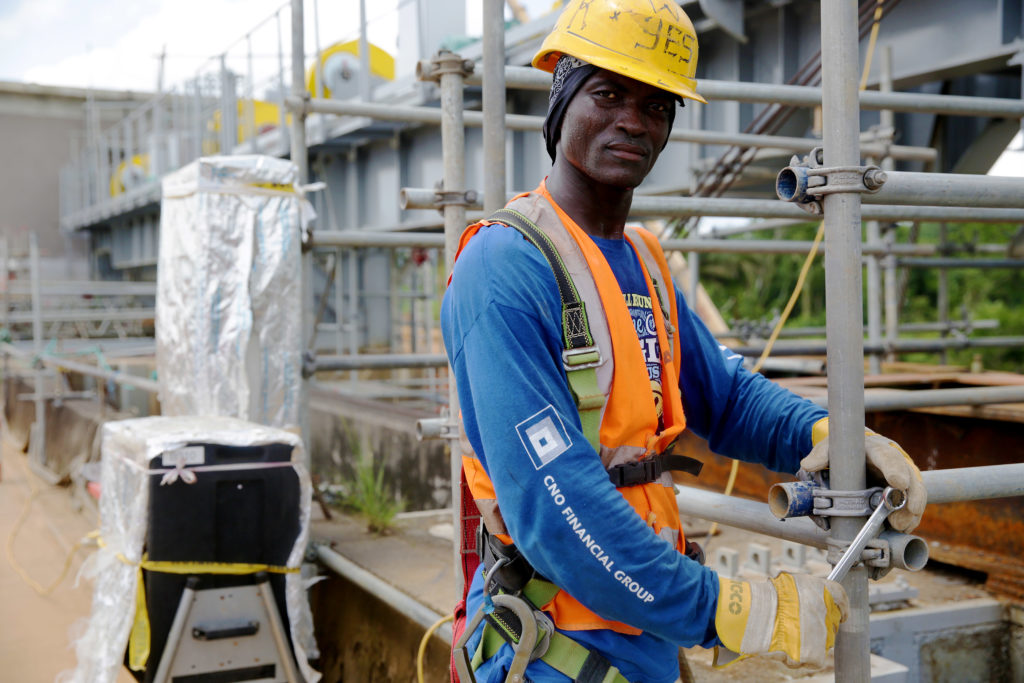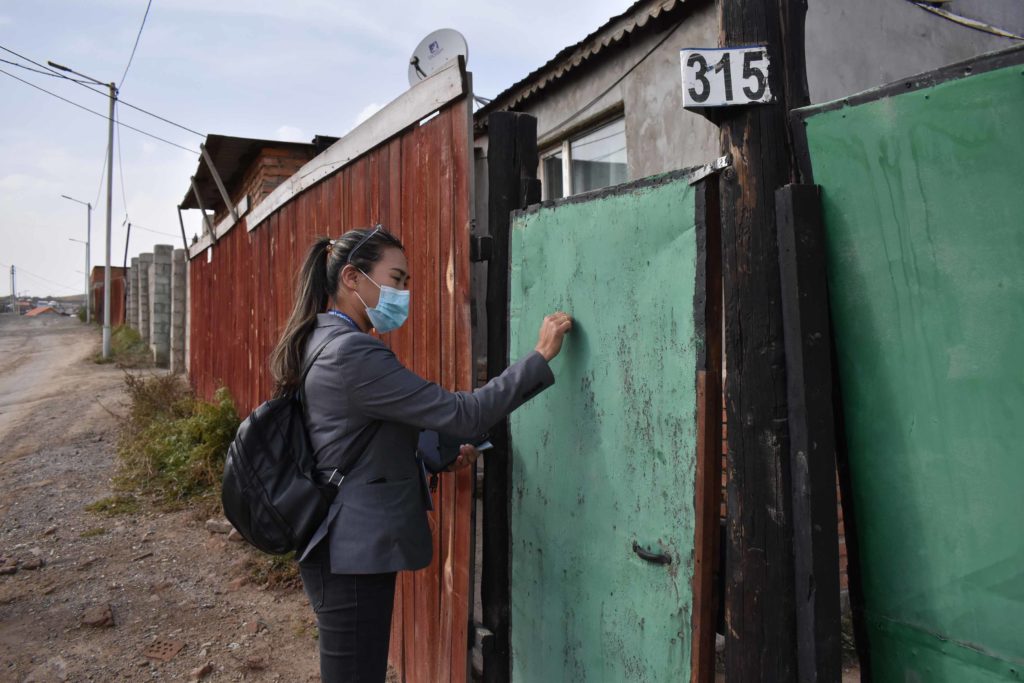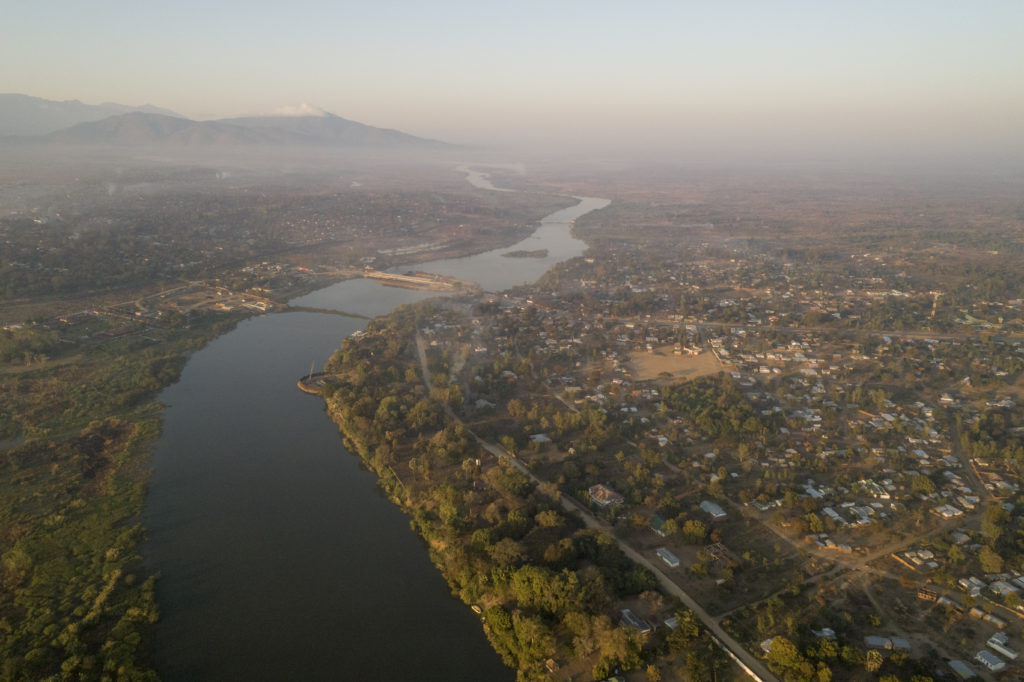
My first three months with the Millennium Challenge Corporation (MCC) have been a whirlwind – learning about our portfolio from our talented staff, engaging with MCC’s country partners, and speaking with friends and stakeholders in Congress, civil society, and across the US Government.
I am struck by the scope of the challenges ahead and how profoundly the global landscape has changed since the agency’s founding in 2004. In the immediate term, the COVID-19 pandemic threatens to erase hard-won development gains, with the first increase in global poverty levels in nearly 20 years.
Other global challenges also loom large on the horizon – climate change, the rise of autocracies and dangerous geopolitical tensions – further threatening prospects for sustainable, inclusive economic growth and challenging democratic values. And there are pressing needs here at home, so it has never been more crucial to use our limited development dollars effectively and strategically.
As someone who worked with MCC from the outside for many years but is only recently seeing the agency from the inside, it is clear to me that much of what MCC does needs to stay the same and be nurtured – that is MCC’s secret sauce – while at the same time, there are new strategic directions MCC must pursue given our rapidly changing world. Simply put, MCC, and all actors who care about development, are at an inflection that will require both preservation and evolution.

MCC’s core model remains as relevant today, 17 years after MCC’s establishment, as it was in 2004. And indeed, is it particularly valuable at this moment.
Laser focus on development effectiveness. MCC’s development effectiveness model – with an emphasis on competitive selection, evidence-based decision making, accountability, transparency, and country ownership of programs – is vital. MCC remains a powerful tool in the U.S. Government’s foreign assistance toolkit.
How we make decisions. Now more than ever, partners are looking to U.S and others for assistance in rebuilding while making tough trade-offs about what investments to prioritize. MCC was designed to help with these key decisions. Our mission is poverty reduction through sustainable and inclusive economic growth. We pursue that mission by striking at the heart of what limits countries’ economic progress. Working in close partnership with governments around the world, MCC tackles the most stubborn constraints to growth — often in sectors like energy, transportation, water, and agriculture.
High-quality money. MCC’s multi-year grants are flexible and predictable, ranging up to $50 million for our smaller threshold programs and up to $700 million for our larger, five-year programs called compacts. As U.S. Secretary of State Antony Blinken said at a recent Board of Directors meeting, this type of funding lets partners “dream big, knowing the money will be there.” Critically, given the impacts of COVID-19 and financial stress around the globe, MCC’s grant dollars do not add to a country’s debt burden. All these attributes means that MCC has what I like to call “high-quality money” and that is a real asset, particularly for infrastructure – one of MCC’s core strengths and an area with profound financing gaps.
Financing +. Funding is not the only element needed to deliver sustainable economic gains. Supporting policy and institutional reforms is key. By targeting our grants to countries that are enacting key reforms that facilitate the effective use and long-lasting impact of MCC’s financing, we empower country ownership. As a result, MCC does not have a footprint in every country. But where we do work, MCC is generally among the largest U.S. Government partners, providing a highly visibly and tangible demonstration of the U.S. Government’s commitment to supporting our partners around the world.
Incentivizing sound policies. MCC’s selective approach also incentivizes democratic values and policy reforms. Potential partners often take steps to improve their governance and policies to attempt to meet MCC’s rigorous good governance standards. This is critical in a world where democratic values are increasingly at risk.

Building on the strength of our model, there are opportunities to evolve and adjust the strategic direction of the agency, particularly to meet the biggest challenges facing the developing world—climate, inclusion and gender, and catalyzing private sector investment.
Climate change. Climate change is the defining issue of our time and inextricably linked to MCC’s poverty reduction and economic growth efforts. More often than not, the countries that have least contributed to climate change are the most impacted by it and the ones least able to afford its consequences. To cite just two examples, the World Bank estimates that the effects of climate change could push an additional 100 million people below the poverty line by 2030. And a recent Stanford University study found that climate change has increased economic inequality between developed and developing nations by 25 percent since 1960.
MCC was an early mover on climate-smart development and sustainable infrastructure among foreign assistance agencies. In fact, over the last five years MCC has invested more than $1.7 billon—roughly 40 percent of our compact funding—in climate adaptation, resilience, and mitigation. At the Climate Leaders Summit, we committed that, over the next five years, MCC will invest more than 50 percent of our program funds to climate-related investments. To meet this goal, MCC has a new climate strategy that aims to mainstream and integrate climate considerations into our work and development objectives, sector by sector and country by country as appropriate and relevant.
Inclusion and gender. Building back better also means making sure we do not leave anyone behind. This is critically important right now, with recent research from the World Bank and others indicating that COVID-19 has disproportionately impacted women and other marginalized groups in developing countries.
Again, MCC was an early mover on these issues. MCC first adopted its Gender Policy in 2006, requiring that gender inequalities be identified and considered throughout the threshold and compact program cycle. More recently, the agency added gender-specific investment criteria to further institutionalize how MCC prioritizes women’s economic empowerment.
Moving forward, MCC will enhance our analytical and diagnostic tools to better assess and ensure that the needs of, and potential impact on, the poor, women, youth, and other marginalized groups are incorporated into the selection, design, and implementation of MCC programs—including in non-traditional sectors. We will step up efforts to promote growth that is broad-based and inclusive. Given the demographics of where MCC works, we may take a closer look at youth.
Catalyzing private investment. Foreign assistance agencies cannot do it alone. Even prior to the COVID-19 pandemic, the UN estimated that there was an annual $2.5 trillion dollar gap between the amount of funding available and the amount required to meet the SDGs. There is simply no way to close this gap without private investment. MCC’s ability to leverage its high-value, grant dollars and provide the necessary strategic, technical, and financial expertise to help catalyze private investment has never been more important.
MCC has a new blended finance strategy, and we are considering blended finance opportunities early in program development. MCC can help improve the risk-return equation for activities that otherwise would not happen. Our goal is to identify leverage and partnership opportunities that directly expand the scale and impact of our projects, while pressing for policy and institutional reforms that will create an enabling environment for additional private sector investment long after our programs are completed.
MCC has launched a new blended finance mechanism with DFC called the American Catalyst Facility for Development (ACFD). Together, we seek to turn deals that have economic, environmental and/or social impact, but that are only marginally financially attractive, into commercially viable propositions through blended finance structures, leveraging the strengths of the two institutions.

With MCC’s 20th anniversary on the horizon, we are engaged in an in-depth reflection on how we can keep delivering high-quality programs and preserve our core model, while also meeting the enormous, new challenges of today and addressing the needs of our partners. In addition to the strategic directions mentioned above, we will need to consider how we can do more to meet the poor where they are, engage with partners countries on the digital economy, remain nimble and optimize our staffing and resourcing model, and to refresh some of our economic tools.
Keeping in mind what makes MCC’s model distinct and valuable, but also critically examining how and where we can evolve – in all cases based on available data and evidence – provides a unique opportunity to improve the impact of our work as we plan for MCC’s next 20 years.